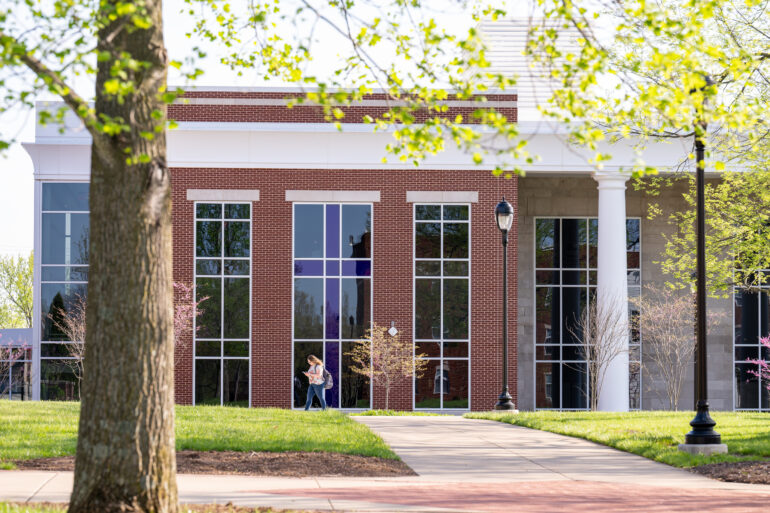If we don’t do anything to help the people we care about, do we really care about them?
Asbury University has a rocky relationship with accessibility for those with mobility challenges. A campus made of hills with buildings that were made long before accessibility was expected, the college is at a natural disadvantage when it comes to providing an inclusive environment for students with impaired movement. Yet, even though it has taken some steps towards providing for these handicaps, many of the so-called fixes leave much to be desired.
“None of the bathrooms have handicapped buttons on them,” said Keturah Cook, a student member of the Asbury Honors Council. “So you can’t use the restroom unless someone helps you open the door to get in and leave. Most of the doors are so heavy that even if you’re not wheelchair bound but you just have reduced strength or stability issues, you can’t open the doors by yourself because they are too heavy.”
Thanks to an allergic response that can lead to bouts of paralysis, Cook has experienced the difficulties of mobility impairment at Asbury firsthand, a reality that has opened her eyes to many of the improvements still needed to accommodate disabled students.
“Calling switchboard to get a golf cart to help escort [someone in a wheelchair] only works if you have a transport chair that can fold up and enough mobility to transfer yourself from chair to golf cart, which is a lot higher than a chair height,” Cook added regarding the difficulties of getting between classes in time. “Additionally, some classrooms do have portable desks that can be moved to use for you in a wheelchair, but not all of them do.”
Students have not been the only ones to notice these obstructive realities on Asbury’s campus. Faculty members have also raised voices of concern regarding the situation for impaired students, especially the problem of actually getting in and out of various buildings.
“There are buildings that have [door] activators, but the activators don’t work… and that’s an issue,” said Dr. Victoria Slocum, Asbury’s Director of Academic Accessibility. “There are two buildings on campus that do not have elevators: Hager and [McCreless]. And it’s not just a problem for wheelchairs but for any kind of mobility challenge.”
Looking at it as a whole, it becomes impossible to ignore just how unwelcoming the campus is to students with mobility challenges. While providing the token necessities, Asbury fails to live up to the heart behind them, never checking to make sure that their door activators worked or were installed in all the places where they were most needed.
“I don’t think it’s due to any lack of compassion on the part of anyone in the administration,” insisted Dr. Slocum, reflecting on the long-standing issues. “They’ve got a lot on their plates, [but] if students start raising questions and issues, that [could be] really good.”
No lack of compassion. Through my discussions with Dr. Slocum, Cook, and other students impacted by the limited accessibility, that reality rang out as a paradox to me. Each student I talked to had stories of individuals who had helped them, be it peers or faculty, to combat their challenges, but love is more than having compassion for the single struggling friend. Love is making space for people with different realities to share the reality that so many take for granted. Or at least, for Christians, it should be.
“God made us all, and we are all worthy of doing the same things,” said Cook. “And in one sense, if we’re in a college campus that’s not actually living up to that accessibility, especially a Christian college, we need to [ask] if we are being an institution that is truly showing the love of God if we are putting people with mobility and other issues to the side. Because that’s not what Jesus did.”
Love is more than compassion. It’s more than the feeling in the moment that leads us to hold a door for someone who can’t open it themselves. Instead, it is an all-encompassing need to provide for God’s children around us. If disabled students are the only ones raising their voices for change, then the student body has failed at reflecting Christ. It is time for the rest of campus to take a step: to shine a light on the needs of those we care about and to show our love for them through the actions we push our school to take.
Photo courtesy of AU Strat Comm. Article written by Sabina Boyer.




